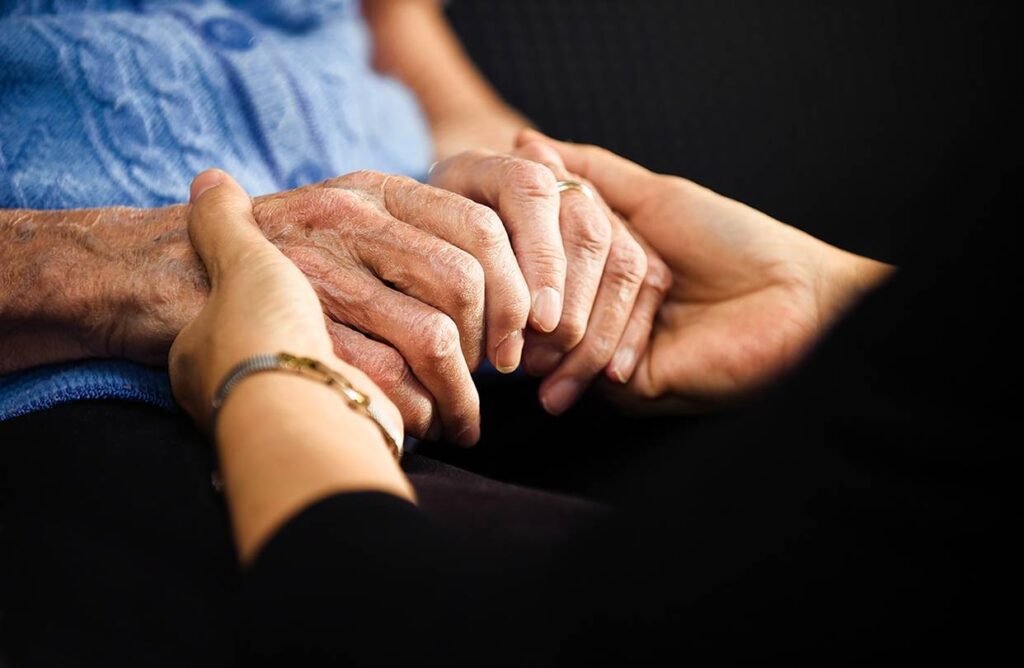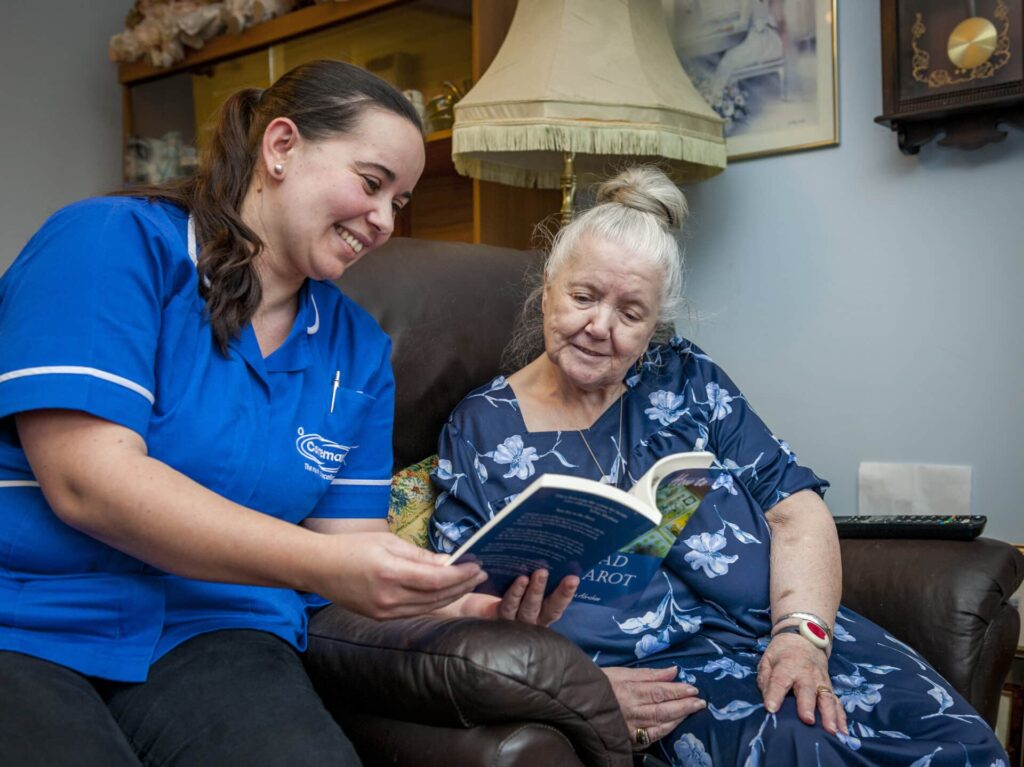Introduction:
When people think of home care, they often associate it with medical assistance—helping seniors or individuals with disabilities manage their medications, monitor vital signs, and recover from illnesses. However, home care extends far beyond medical support. It plays a crucial role in improving overall well-being, promoting independence, and enhancing the quality of life in ways that are often overlooked.
In this article, we will explore the hidden benefits of home care beyond medical assistance, highlighting its impact on emotional well-being, social connections, mental health, and everyday life.
1. Emotional and Psychological Well-Being in Senior Home Care
Living in a familiar environment has profound psychological benefits. Senior home care provides emotional stability and comfort in several ways:
- Reduced Anxiety and Stress: Aging individuals often feel stressed when transitioning to an unfamiliar setting, such as a nursing home. Home care allows them to stay in their own space, reducing anxiety and preserving peace of mind.
- Increased Sense of Control: Having a say in daily routines and lifestyle choices contributes to self-esteem and emotional resilience.
- One-on-One Emotional Support: Caregivers form meaningful relationships with those they assist, offering companionship and emotional encouragement that significantly reduces feelings of loneliness and depression.
2. Strengthening Social Connections Through
One of the biggest challenges for seniors and those needing long-term care is social isolation. Home care services help bridge the gap by:
- Encouraging Family Involvement: Unlike institutional care, where family visits may be limited, home care enables loved ones to spend quality time together more freely.
- Facilitating Community Engagement: Caregivers can accompany individuals to social events, religious gatherings, or hobby groups, helping them stay connected to their communities.
- Promoting Communication: Care providers encourage conversations, reminiscence therapy, and engagement with friends and relatives, which is essential for mental and emotional well-being.

Senior on a mobile phone.
3. Support for Daily Living and Independence
Home care enables individuals to maintain their independence while receiving support with everyday tasks, such as:
- Personalized Assistance with Daily Activities: From dressing and grooming to meal preparation and light housekeeping, caregivers ensure clients can maintain their routines comfortably.
- Mobility Support: Whether it’s assistance with walking or exercise routines, caregivers help maintain physical activity levels, reducing the risk of falls and promoting overall health.
- Dietary Guidance and Meal Planning: Proper nutrition is key to health and longevity. Home care professionals prepare balanced meals that cater to individual dietary needs, ensuring seniors receive the nutrients they need.
4. Cognitive Stimulation and Mental Health Benefits
Cognitive decline is a major concern for seniors, but home care can support mental agility through:
- Engaging Activities: Caregivers encourage puzzles, reading, arts and crafts, and stimulating conversations to keep the brain active.
- Memory Support for Dementia Patients: Those suffering from Alzheimer’s or dementia benefit from structured routines, reminders, and cognitive exercises tailored to their needs.
- Companionship to Combat Depression: Studies show that loneliness is linked to increased rates of cognitive decline and depression. Having a dedicated caregiver provides consistent interaction and reassurance.
5. Safety, Security, and Peace of Mind
Home care offers an added layer of safety and security for both the individual receiving care and their loved ones:
- Fall Prevention Measures: Caregivers help create a safe living space by removing hazards, assisting with mobility, and implementing safety modifications.
- Emergency Preparedness: Many home care services offer 24/7 support, ensuring help is available in case of emergencies.
- Medication Reminders: While not a substitute for medical supervision, caregivers ensure clients take their medications correctly and on time, reducing health risks.

Doctors Holding a Senior hand.
6. Respite Care for Family Caregivers
Caring for a loved one can be emotionally and physically exhausting. Home care services provide much-needed relief for family caregivers by:
- Allowing Time for Self-Care: Family members can take breaks, reducing burnout and stress.
- Providing Professional Assistance: Trained caregivers can handle complex care needs, ensuring the best possible support.
- Enhancing the Caregiving Experience: A support system allows family members to focus on their relationships rather than feeling overwhelmed by caregiving responsibilities.
7. Cost-Effectiveness Compared to Institutional Care
Contrary to popular belief, home care can be a more affordable option than assisted living facilities or nursing homes.
- Flexible Care Plans: Home care services can be tailored to specific needs, allowing families to pay only for the services required.
- Reduced Hospital Readmissions: By preventing falls, infections, and other complications, home care reduces costly hospital visits.
- Maintaining Independence Longer: Seniors who receive home care may delay or avoid the need for full-time institutional care altogether, saving significant costs in the long run.

Home Healthcare worker.
Real-Life Case Studies and Testimonials
Case Study 1: Keeping a Senior Active and Engaged
Mrs. Thompson, an 80-year-old widow, was struggling with loneliness and mild cognitive decline. Her family enlisted home care services to provide companionship and daily engagement. With a caregiver’s support, she resumed her love for painting, started light physical activities, and maintained a more structured routine. Her mood improved significantly, and she regained a sense of purpose.
Case Study 2: Supporting a Stroke Survivor
After suffering a stroke, Mr. Rodriguez needed assistance with mobility and everyday tasks. His home caregiver helped with rehabilitation exercises, meal preparation, and social outings. Over time, his strength improved, and he remained in his home rather than transitioning to an assisted living facility.
Conclusion: A Holistic Approach to Care
Home care is more than just medical assistance—it is a holistic service that enhances physical, emotional, and social well-being. By fostering independence, reducing stress, and promoting active engagement, home care helps individuals maintain a high quality of life in the comfort of their own homes.
At Previce Care, we understand that every individual has unique needs. Our compassionate caregivers provide customized home care solutions that go beyond medical assistance, ensuring our clients receive the care, companionship, and support they deserve. Contact us today to learn how we can enhance the well-being of your loved ones through personalized home care services.
Would you like to know more about home care solutions? Reach out to us at Previce Care for a consultation and let us help you find the best care plan for your loved one.








